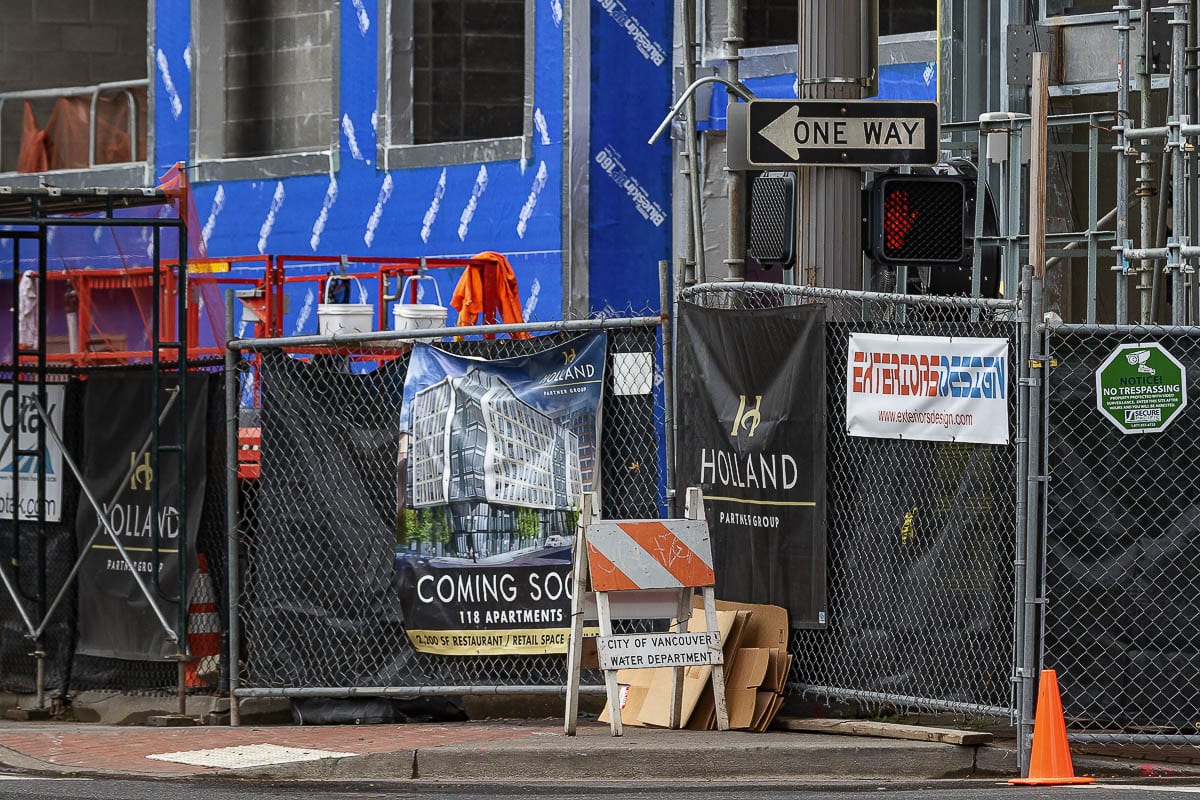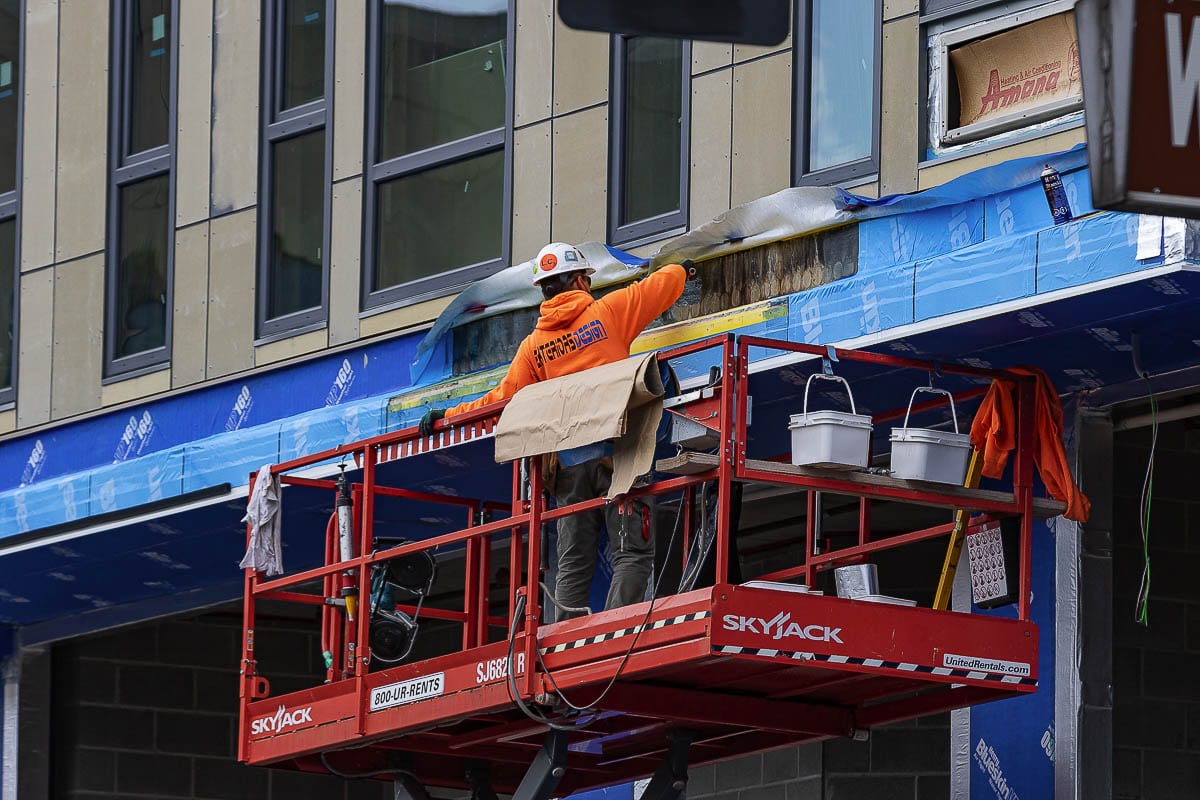The plan to adjust income requirements for affordable units met with resistance from developers
VANCOUVER — Facing increasing opposition from developers, five of the seven members of the Vancouver City Council on Monday opted to delay action on changes to the Multi-Family Tax Exemption (MFTE) program.
The MFTE allows developers to apply for property tax exemptions for a period of eight, 10, or 12 years in exchange for providing a certain number of housing units deemed affordable.

Since 2017, a total of fourteen projects have been granted the exemption, said Chad Eiken, the city’s community and economic development director, accounting for 1,317 new housing units and $306 million in economic investment.
“Of those, five are market-rate projects with no restrictions on income,” said Eiken. “Five of the projects are income restricted at 100 percent of the Area Median Income (AMI), and four of the projects are restricted at 80 percent of the area median income.”
Developers can also request 12 years of tax exemptions if they agree to price 20 percent of their units at 60 percent of AMI, but none have done so, said Eiken.
The issue at hand Monday was a plan to adjust how the AMI is calculated for determining what qualifies as “affordable housing.”
Currently, the formula uses the six-county Portland Metro family median income, which is $92,100, while the median household income within the city of Vancouver is 29.5 percent lower at $64,900.
Using that formula, an affordable two-bedroom apartment could fetch more than $2,000 a month and still qualify as affordable for people making the median area family income. That amount is more than $600 above the Vancouver market rate for a two-bedroom apartment.

The proposed ordinance heard Monday would have retained the use of the Portland area AMI, while adjusting the affordability level of housing units in exchange for tax exemptions.
- 8 year tax exemption: 20 percent of units at 70 percent AMI
- 10 year tax exemption: 20 percent of units at 55 percent AMI
- 12 year tax exemption: 20 percent of units at 45 percent AMI
That proposed adjustment would represent an average income threshold reduction of 30 percent over the current MFTE requirements, said Eiken.
Following a work session in September, staff met with stakeholder groups in September and November, hearing around approximately 25 multi-family housing developers who had made use of the MFTE.
Criticism ranged from concern that the adjustments would make it more difficult to generate enough rent from affordable units to make building them feasible, and reduce the likelihood of developers seeking the exemptions.
Developers also noted that construction taxes often make developing in Vancouver more costly than Portland, making the exemptions a way to recoup some of that added expense.
All of that prompted most of the council to support delaying any action on the MFTE adjustment until further study can be done on the potential impacts.
“I think that there’s a lot more analysis that needs to be done here,” said Councilor Erik Paulsen. “The housing market is a complicated system.”
Paulsen argued that the goal of the Multi-Family Tax Exemption was three-fold:
- Improving services available to underserved or vulnerable residents
- Making downtown Vancouver a vibrant destination for the community and region
- Strengthening neighborhood business districts
“I would say that, regardless of what our intent was, these projects that have taken advantage of that have contributed at the very least to (two of those),” Paulsen added. “Regardless of whether they were affordable at the intended levels of income based on the way that we are defining income.”
Paulsen noted that perhaps the solution is to find a different term than “affordable” to describe the lower cost housing units that qualify developers for the MFTE.
“I think we need to call it what it is for the time being while we’re figuring it out,” he said. “I think we need to study this issue much more broadly.”
Councilors Ty Stober and Sarah Fox were the only ones to support moving ahead with the ordinance immediately.
“I don’t think that making this particular change right now, that’s been very well researched by staff and brought forward to us tonight … would mean that we suddenly can’t make any further changes in the future to our program,” said Fox. “I think what it shows us tonight is that we’re making progress on something that’s well overdue.”
A proposal by Stober to put a temporary moratorium on MFTEs for units at 100 percent AMI was also voted down 5-2.
The Council instructed staff to continue working on the issue, looking at how it might be used to also incentivize home ownership, and potentially be altered for other parts of the city to bring in more affordable housing.
No firm date was set to revisit the issue.




